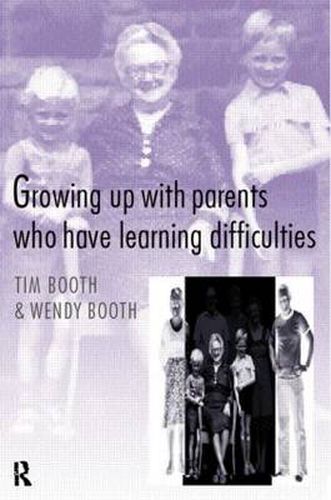Readings Newsletter
Become a Readings Member to make your shopping experience even easier.
Sign in or sign up for free!
You’re not far away from qualifying for FREE standard shipping within Australia
You’ve qualified for FREE standard shipping within Australia
The cart is loading…






Observing children under pressure reveals the extent of their resilience. Studying parents on the margins of competence provides new insights into the limits of parental adequacy. This book uses a life-story approach to present new evidence about how children from such families manage the transition to adulthood, and about the longer-term outcomes of such an upbringing. It offers a view of parental competence as a social attribute rather than an individual skill, assessing the implications for institutional policies and practices. The authors address the notion of children having to parent their disabled parents and argue for a shift in emphasis from protecting children to supporting families. The book demonstrates the power of narrative research and its capacity for bringing alive people’s experience in a way that enables us to better understand their lives. It should be of particular interest to professionals and academics working with people who have learning difficulties.
$9.00 standard shipping within Australia
FREE standard shipping within Australia for orders over $100.00
Express & International shipping calculated at checkout
Stock availability can be subject to change without notice. We recommend calling the shop or contacting our online team to check availability of low stock items. Please see our Shopping Online page for more details.
Observing children under pressure reveals the extent of their resilience. Studying parents on the margins of competence provides new insights into the limits of parental adequacy. This book uses a life-story approach to present new evidence about how children from such families manage the transition to adulthood, and about the longer-term outcomes of such an upbringing. It offers a view of parental competence as a social attribute rather than an individual skill, assessing the implications for institutional policies and practices. The authors address the notion of children having to parent their disabled parents and argue for a shift in emphasis from protecting children to supporting families. The book demonstrates the power of narrative research and its capacity for bringing alive people’s experience in a way that enables us to better understand their lives. It should be of particular interest to professionals and academics working with people who have learning difficulties.